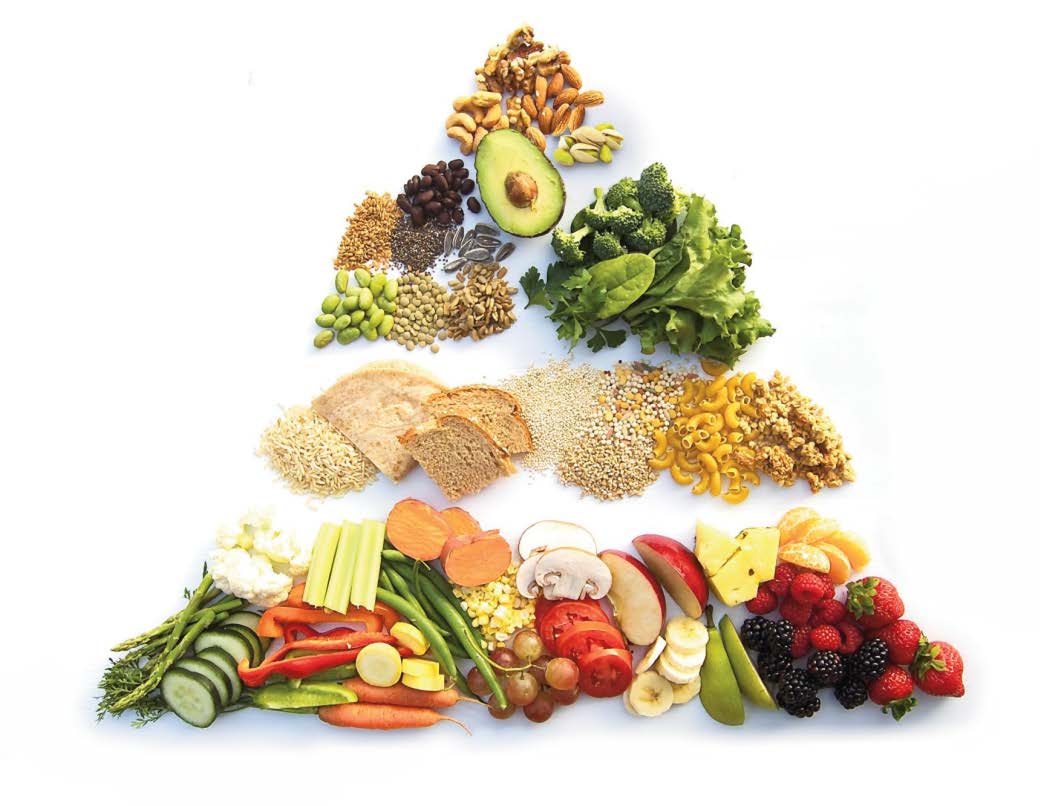What role does nutrition play for children with ADHD? This is a controversial subject and, because we often have an emotional attachment to food, we are reluctant to look at this as an adjunct treatment. The studies that have been done do not provide consistent results. It is suggested, however, that the "Western" way of eating (the Standard American Diet) plays a role and this is especially true for boys.
BY TERI YUNUS
When my son's preschool teacher called me and said that my three-year-old was so fidgety he kept falling off his chair, I felt like this was another level of challenge for this little one. He had been in the program for deaf children just a few weeks when I got the call. In the 1980s, attention disorders were becoming more prominent and teachers were often at their wit's end with how to manage these kids.
At that time, I was a single mom with three little boys and two jobs and convenience was top priority for me. My boys ate Fruit Loops and Cap'n Crunch, Spaghetti O's, boxed macaroni and cheese, along with lunchmeat and canned tuna. My youngest son was born deaf (to the best of our knowledge) and was a very picky eater. He was offered fruits and vegetables and was so tactically defensive that he gagged on anything with texture. He would only tolerate soft foods. Bologna and pancakes became his favorites.
By age four, my son was being prescribed stimulants to control his hyperactive tendencies. This was over 30 years ago, and I remember it as being stressful for my son, who was the most loving little boy, and our entire family. His symptoms became center stage and that environment was hard on all of us. The double disability demanded a lot of attention and the entire family felt it. The medications required multiple doctor visits for adjustments and we tried them all. None of these drugs gave him significant relief and the investment in managing this disorder was an added stressor.
Attention deficit hyperactivity disorder (ADHD) affects approximately 11% of US children aged 4-17. The Centers for Disease Control estimates that 2.7 million children in the U.S. are currently taking medication for ADHD. The disorder can disrupt cognitive, academic, behavioral, emotional and social functioning. It may be associated with other conditions, such as learning disabilities, anxiety, depression and conduct disorders. The cause is unknown and thought to be a combination of genetic and environmental factors. It is characterized by inattention and impulsivity and may present as disorganization, forgetfulness, poor concentration, academic underachievement, inability to follow instructions or finish tasks, risky activities without consideration of consequences, disruptive behavior, interrupting others, impatience. Hyperactivity can be seen as fidgeting, difficulty remaining seated, inability to remain quiet, or restlessness.
The disorder is seen more frequently in boys and there seems to be a genetic propensity among siblings with the disorder. Early lead exposure is one of the environmental risk factors known. There are diagnostic criteria that must be met prior to diagnosis as not all children with these symptoms have the disorder.

GREAT PYRAMID: A whole food plant-based diet is based on whole foods that have minimal to no processing. Beans, legumes, vegetables, whole grains, fruit, nuts and seeds provide the macro and micronutrients that promote health. These foods also contain hundreds of naturally-occurring phytonutrients that may protect against cancer, heart disease, osteoporosis, and other chronic health conditions.
Standard management for ADHD often focuses on pharmacologic treatments with stimulants and other prescription medications. These drugs can be helpful in many cases but the side effect profile for most of the treatments can be problematic. Behavioral interventions are often recommended as the initial treatment for children with ADHD and are often used in combinations with medications. We know that physical activity is critical for growth and development and may help reduce the symptoms for kids with ADHD.
What role does nutrition play for children with ADHD? This is a controversial subject and, because we often have an emotional attachment to food, we are reluctant to look at this as an adjunct treatment. The studies that have been done do not provide consistent results. It is suggested, however, that the "Western" way of eating (the Standard American Diet) plays a role and this is especially true for boys. High intakes of sugar, salt, fat with minimal consumption of whole grains, fruits, and vegetables may be an associated risk of ADHD.
Some of the nutritional factors that are currently under study include artificial food colorings and common allergens. It is likely that artificial food colorings play a role in the development of symptoms in some with ADHD. Some children with ADHD may also be sensitive to foods such as milk, chocolate, eggs, soy, wheat, corn and legumes, along with salicylate-containing foods such as grapes, tomatoes and oranges. Inadequate vitamin and mineral intake may play a role in ADHD. Iron, copper, zinc, magnesium and calcium deficiencies are common in those with ADHD and it is theorized that this may affect the central nervous system. Nutrient poor meals and snacks are implicated as contributory for those with ADHD. Those with ADHD may also have lower levels of omega-3 fatty acids and higher levels of omega-6 that may lead to inflammation and oxidative stress.
They say hindsight is 20/20 and looking back, I would have done things much differently if I knew then what I know now. As parents, we do the best we can with the information and experience we have. This is the motivation for this article. There is information that you may not be aware of and your family may be struggling like mine did. Most of us turn to our doctors for nutritional advice, not knowing that physicians get little to no nutritional education. No medical professional ever talked to me about diet when I was seeking treatment for my son's ADHD. What I know now came many years later.
Most of us believe that we are eating and feeding our children a healthy diet. It is difficult to know what a healthy diet is given all the conflicting information we are exposed to on a daily basis. The food industry promotes food products not based on health, but based on sales and demand. Food that is advertised is typically highly processed. These items lack adequate nutrients yet taste so amazing we go back for more (earning the industry more dollars). Highly processed foods often contain artificial food colorings, flavorings, and preservatives and do not have the micronutrients that are essential for good health. Fast foods and foods high in sugar, salt and fat light up all the dopamine receptors in the brain and can be soothing to those with attention disorders.

ROUNDING INTO SHAPE : Diet may be that added tool that can make a difference with your child today and in his future. Eating a whole food plant-based diet can help prevent obesity, diabetes, high blood pressure, cancer, heart disease and many other chronic illnesses. Setting our children up for the best adult life is part of our jobs as parents.
What we know is that there is little good science consistently connecting diet with ADHD. We know that there is concern about food additives, preservatives and flavorings, along with other toxins and chemicals found in our food supply. We know that most children with ADHD eat the Standard American Diet (SAD). This way of eating is associated with multiple disease processes and not optimal for health. We know that most children do not eat the recommended amount of vegetables, fruits, beans and whole grains. We know that the gut microbiome plays an important role in overall health and may be strongly associated with ADHD. We know that children lead more sedentary lives than their parents did. Lack of physical activity has a role in ADHD. We know that environmental exposures to toxins has been linked to ADHD.
One treatment that may help in all these areas is a whole food plant-based (WFPB) diet. This style of eating is based on whole foods that have minimal to no processing.
Beans, legumes, vegetables, whole grains, fruit, nuts and seeds are the foods that provide the macro and micronutrients that promote health. Dr. Michael Greger, nutritional expert, researcher and founder of nutritionfacts.org states these foods contain not only the essential vitamins and minerals, but also hundreds of naturally occurring phytonutrients that may protect against cancer, heart disease, osteoporosis, and other chronic health conditions.
Meat has become the "main dish" in the SAD and many people wonder what plantbased eaters actually eat. A WFPB diet does not need to be complicated. There are recipes available online to satisfy the needs of most families. There are soups, casseroles, salads, side dishes, pasta dish es, comfort foods, amazing desserts, and so much more. Some WFPB eaters are starch based, others based on greens and beans. The possibilities are endless.
Foods that are excluded from this way of eating include added oils, added sugar, all animal products including meat (includes chicken and turkey), fish, dairy (yes, cheese, too) and eggs along with processed foods. These foods are often very high in saturated fat, trans fat, salt and other additives. "Junk" foods are also excluded from this lifestyle as they do not promote healing but can diminish our health. It is important to know that not all "health" foods are healthy.
Growing up, most of us heard repeatedly, "eat your vegetables"… many of us may use these words with our own children. Most of us know that vegetables are one of the healthiest foods we can eat. Many plant-based doctors and nutritionists agree that the more veggies we eat, the healthier we will be.
Foods common in the WFPB diet feed the gut microbiome (the good bacteria in our digestion tract). You may have heard the old adage, "you are what you eat"… this one, too, is very true. What we eat determines what gut bacteria are in our intestines and this plays an important role in our ability to fight disease and our overall well-being. Preliminary human studies have demonstrated the likelihood of a connection between the gut microbiota and ADHD and overall brain health. Eating a WFPB diet improves gut health and consequently reduces inflammation.
The bottom line is this… there is not ONE right way to treat this complex condition. Often, ADHD is best managed by multiple modalities. Medication is one, behavior therapy is another, diet may be that added tool that can make a difference with your child today and in his/her future. Eating a whole food plant-based diet can help prevent obesity, diabetes, high blood pressure, cancer, heart disease and many other chronic illnesses. Setting our children up for the best adult life is part of our jobs as parents. Your family may consider experimenting with adding more plant-based foods and reducing animal products to see what improvements may be seen. Using dietary intervention does not mean abandoning medications. Nutrients are compatible with drugs to a greater degree than the medications that are common to ADHD are compatible with other drugs.
Dr. Joel Fuhrman, Dr. Neal Barnard and Dr. Michael Greger offer information on what this lifestyle can do for your child and your family. These physicians, and others, are reputable and base their recommendations on the best research available. ADHD management can be easier when offering the healthiest foods. The bonus is that typical chronic illnesses that so many Americans are experiencing now can be prevented when the illness-causing foods are eliminated and replaced with the most nutritious options. Many cities and town have organized groups for plant-based eating support. If your town doesn't have one, consider working with other parents to create one in your community. You are not alone. Many parents are searching for better answers, just like you. •

ABOUT THE AUTHOR:
teri yunus is a Family nurse Practitioner and nationally board-certified health & wellness coach with health up with teri! she recently retired from her work as a nurse practitioner and devotes her time to coaching with emphasis on transitioning to a whole food plant-based lifestyle. she empowers her clients to take their power back and the results she sees with her clients is transformative! healthupwithteri.com contact teri at healthupwithteri@gmail.com
References - Nutrition Guide for Clinicians: Attention Deficit Hyperactivity Disorder nutritionguide.pcrm.org/nutritionguide/view/Nutrition_Guide_for_Clinicians/1342020/all/Attention_ Deficit_Hyperactivity_Disorder Updated: November 14, 2017 Diet and attention deficit hyperactivity disorder; Harvard Medical Newsletter; published June, 2009 health.harvard.edu/newsletter_article/Diet-and-attention-deficit-hyperactivity-disorder Diet and ADHD, Reviewing the Evidence: A Systematic Review of Meta-Analyses of Double-Blind Placebo-Controlled Trials Evaluating the Efficacy of Diet Interventions on the Behavior of Children with ADHDhttps://www.ncbi.nlm.nih.gov/pmc/articles/PMC5266211 Rationale for Dietary Antioxidant Treatment in ADHD ncbi.nlm.nih.gov/pmc/articles/PMC5946190 The diet factor in attention-deficit/hyperactivity disorder. ncbi.nlm.nih.gov/pubmed/22232312 Reduced microbiome alpha diversity in young patients with ADHD ncbi.nlm.nih.gov/pmc/articles/PMC6042771 Gut microbiome in ADHD and its relation to neural reward anticipation. ncbi.nlm.nih.gov/pubmed/28863139 Influence of diet on the gut microbiome and implications for human health J Transl Med. 2017; 15: 73. Published online 2017 Apr 8. ncbi.nlm.nih.gov/pmc/articles/PMC5385025 A Gut Feeling: A Hypothesis of the Role of the Microbiome in Attention-Deficit/Hyperactivity Disorders ncbi.nlm.nih.gov/pmc/articles/PMC6047248 Gut microbiota and attention deficit hyperactivity disorder: new perspectives for a challenging condition. ncbi.nlm.nih.gov/pubmed/28289903 Proper nutrition and supplementation essential for treating ADHD. December 28, 2016 by Joel Fuhrman, MD drfuhrman.com/library/eat-to-live-blog/94/proper-nutrition-and-supplementa- tion-essential-for-treating-adhd Attention Deficit/Hyperactivity Disorder (ADHD) in Children: Rationale for Its Integrative Management P. M. Kidd, PhD Alternative Medicine Review - Volume 5 Number 5 – 2000 pdfs.semanticscholar.org/18fb/c9472427d5ac1240ff91ef45432987cf0657.pdf We Are What We Eat nutritionfacts.org/video/microbiome-we-are-what-they-eat Michael Greger, M.D., FACLM, June 12, 2017 – Volume 36 The Healthiest Diet nutritionfacts.org/video/what-is-the-healthiest-diet Michael Greger, M.D., FACLM, October 16, 2016 – Volume 32 Children photo - freepik.com/free-photo/playful-classmates-having-fun-on- playground_867855.htm">Designed by Pressfoto